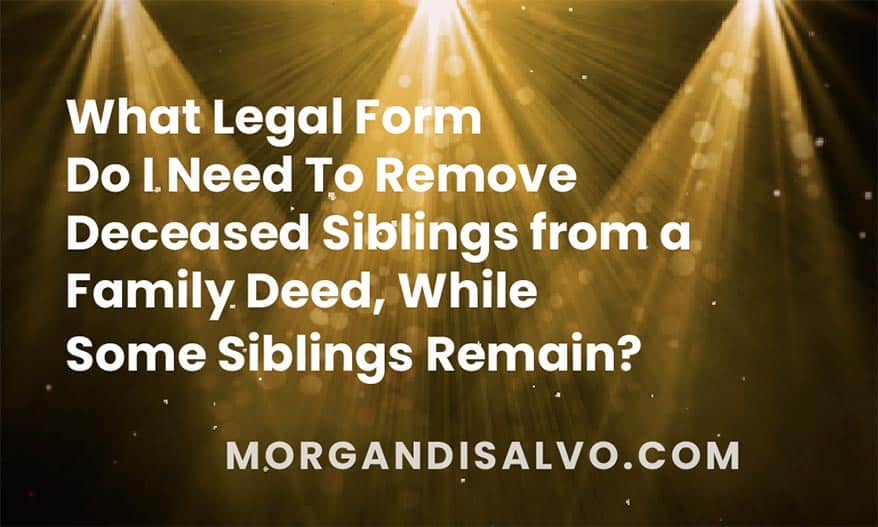Question: What legal form do I need to complete to remove four deceased siblings from the family deed, yet leave my three remaining siblings?
Loraine’s Answer: There is no specific form that you can use to remove the names of deceased owners from a real estate deed. You need to start by looking at how the deed is written and the property’s location, then determine what should have happened when each owner died.
I’ll address Georgia law because that’s where I’m licensed and that’s where you indicated that you live. If the property is in another state, please note that the laws in that state will need to be addressed. Depending on where your siblings lived when they died and whether they had Wills, other states’ laws may also apply.
If a deed states that multiple owners hold title to a property as ‘joint tenants with rights of survivorship,’ the surviving owners simply receive the other owners’ interests as the owners die. Once all but one of the listed owners has died, the last owner standing will generally be the sole owner of the property. It’s important in Georgia that the deed contains specific language creating the right of survivorship; simply listing the owners’ names on the deed isn’t enough.
It’s most likely, however, that the property that you received as an inheritance from other family members is owned as what is called ‘tenants in common.’ With this type of ownership, a deceased owner’s interest passes in accordance with that owner’s Will or, if the owner does not have a Will, by the intestacy laws of the state where the property is located. I am assuming that none of your siblings held their interests through a trust, because that gets more complicated.
Each deceased owner’s estate must be administered or otherwise dealt with before you will be able to take any steps with regard to the property, so you can determine who actually owns the property now. It may be that an Executor or Administrator needs to be appointed for each deceased owner’s estate in order to transfer title of that owner’s interest to the appropriate new owners. If a deceased owner was survived by a spouse or minor children, and if that owner died less than 2 years ago, then it might instead be possible for a court to issue an order of year’s support that transfers that owner’s interest from their estate to the spouse or the minor children. Once each deceased owner’s estate has been properly addressed, you should have an idea of exactly who currently owns interests in the property. Those owners can then figure out whether they are all willing to join in a sale or other transfer of the property and how they want to handle the property in the future.
You may want to contact the Georgia Heirs Property Law Center for help untangling ownership of the property and figuring out what you need to do. They focus on helping families like yours who have inherited property and need to clean up the title.
Key Estate Planning Takeaway: In most cases, inherited property is received by the new owners as tenants in common, a form of joint ownership under which a deceased owner’s interest becomes part of that owner’s estate at that owner’s death, and does not automatically transfer to surviving owners. If you and your siblings hold the property in question as tenants in common, then each of the deceased siblings’ estates now needs to be dealt with if they haven’t already been. Each deceased sibling’s interest will then need to be transferred to the appropriate new owners.
This “Q&A with Loraine” blog series features answers from Morgan + DiSalvo Partner Loraine DiSalvo to questions posted on www.avvo.com. A key takeaway from each exchange highlights an important facet of estate planning.


